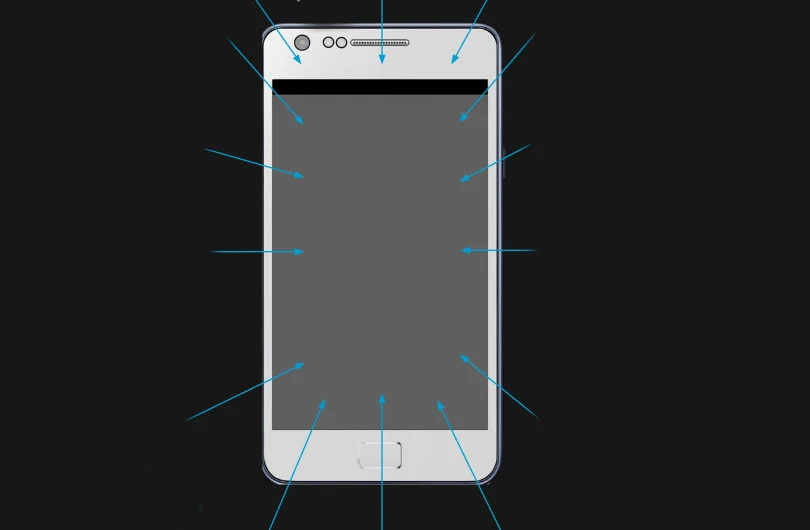Engine filed an amicus petition to the Supreme Court of the United States on Tuesday, November 13th to urge the court to consider the case. In our brief, we argue that the Federal Circuit’s decision in the case conflicts with the Supreme Court’s ruling on patentable subject matter eligibility.
Engine Files Amicus Brief in La Park La Brea v. Airbnb
Engine Files in Net Neutrality Repeal Challenge
One Year After TC Heartland, Texas NPEs Migrate to Greener Pastures
A year after the Supreme Court’s unanimous decision in TC Heartland LLC v. Kraft Food Group Brands LLC, however, Marshall may be returning to the normalcy of tumbleweeds and prairie, as NPEs who once filed there flock instead to other jurisdictions.
Statement on Federal Appeals Court Decision on Fair Use
A Call for Cross-Border Cooperation
Engine Welcomes Supreme Court Ruling in TC Heartland Case
Today, the Supreme Court delivered a blow to patent trolls by unanimously reversing the Federal Circuit’s decision in TC Heartland v. Kraft Foods Group Brands LLC. The high court ruled that defendants in patent cases can only be sued where they are incorporated or have a regular and established place of business. The decision will make it significantly harder for patent trolls to file lawsuits in jurisdictions that patent-friendly but otherwise unrelated to the claims at issue—most notably the Eastern District of Texas, where almost forty percent of patent cases were filed last year.
Engine Statement on Ninth Circuit Ruling on Immigration Ban
Today, the U.S. Court of Appeals for the 9th Circuit ruled against President Trump’s executive order banning the citizens of seven countries and refugees from entering the U.S., maintaining a lower court’s freeze on the order. As a result, immigrants and refugees who were previously barred from the country under Trump’s EO can continue to enter the U.S.
So How Many Patents Are in a Smartphone?
The Supreme Court’s December 2016 decision in Apple vs. Samsung reversed a dangerous lower court decision that would have allowed patent plaintiffs to claim the total value of a product containing an allegedly infringing design feature, even if that design feature only provides a small amount of the product’s value. While total profits awards may arguably have been more plausible in an age when devices were less complicated and the design of the object constituted a significant portion of its value, the complexity of modern devices renders total profits awards for design patent infringement particularly illogical.
One Way to Protect Startups from Patent Trolls? Get Rid of Bad Patents.
The patent system was established by our founding fathers as a tool to promote innovation and invention. But too often, America’s most creative, forward-thinking startups find themselves interacting with the patent system in a less-than-ideal way: on the receiving end of an infringement suit or a letter threatening as much. Bad actors that have amassed hundreds and thousands of overbroad, low-quality patents (colloquially known as “patent trolls”) target businesses, using these patents as proverbial weapons with the goal of forcing companies into costly settlements.
Engine Welcomes Supreme Court’s Ruling in Design Patents Case
This morning, the Supreme Court ruled unanimously in Samsung’s favor in a case against Apple involving how damages should be calculated and awarded in design patent cases. In a win for the startup community, the court held that an award for design patent infringement does not necessarily allow the patent holder to obtain damages equivalent to the total profits of a product in which the patented design is used, as the lower court originally ruled. Rather, courts can award design patent damages for the particular components in which the patent was used. The decision may result in the lower court drastically decreasing its original award of almost $400 million to Apple, though the Supreme Court did not rule on how the modified damage amount should be calculated.
Startups should be watching as the Supreme Court decides Samsung v. Apple
Historically, startups have had little occasion to pay attention to the proceedings of our nation’s highest court. While arcane questions of constitutional law have an enormous impact on broader society, the Supreme Court’s activities are often too far removed from the challenges entrepreneurs must handle every day to simply keep their businesses afloat. But, an upcoming case on the Supreme Court’s docket may warrant a shift from this traditional mindset, as the outcome of the dispute could have a resounding impact on startups and small businesses in all industries.
Engine Statement on Federal Court Ruling on Net Neutrality
Today, the D.C. Circuit Court of Appeals upheld the Federal Communication Commission’s (FCC) historic net neutrality rules in a 2-1 vote. Affirming that Internet Service Providers (ISPs) cannot block, throttle, or slow down web traffic at their own discretion, the ruling is a major victory for thousands of startups that depend on the open internet as a level playing field.
The VENUE Act: It's Time to Get Patent Trolls out of East Texas
This week, Senators Flake, Gardner, and Lee introduced a piece of legislation targeting one of the most egregious—and, frankly, ridiculous—problems with our current patent system. Specifically, the Venue Equity and Non-Uniformity Elimination (VENUE) Act would get patent cases out of the Eastern District of Texas, where patent trolls most commonly file their specious lawsuits. Together with the comprehensive reform legislation found in the PATENT Act, this bill would help put an end to a dangerous patent troll problem that continues to prey on this country’s startups and innovators.




















